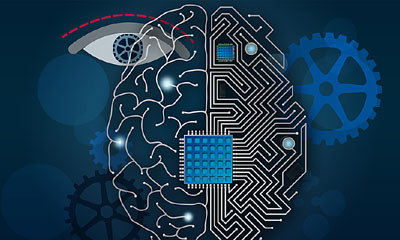 Google's DeepMind has moved on from playing Go to more serious matters - attempting to solve some of the world's biggest health problems.
Google's DeepMind has moved on from playing Go to more serious matters - attempting to solve some of the world's biggest health problems.
Projects include a tie-up with London Moorfields eye hospital, which will see it using one million eye scans to train its artificial intelligence system to diagnose potential sight issues, and development of an app to help doctors spot kidney disease.
Google's entry on to the healthcare scene has been welcomed by some, notably doctors who are desperate to apply some cutting-edge technology to antiquated NHS systems.
But less so by privacy groups and some patients, who have been surprised and concerned that their data - in some cases not anonymised - can be shared with the tech giant's AI division.
So what does Google want with our health data and should we be worried?
In May it was revealed that Google's DeepMind, had been given access to the healthcare data of up to 1.6 million patients from three hospitals run by London's Royal Free Trust in order to develop an app, called Streams, that would notify doctors should someone be at risk of developing acute kidney injury (AKI).
The deal had been announced in February but at the time got little press attention.
The biggest question mark was over why so much data was being shared, especially as only a tiny percentage of people would actually benefit from the app.
Some were also bemused when it became apparent that the deal with Google's AI firm would not actually involve any artificial intelligence.
The reality, explained Mustafa Suleyman, DeepMind co-founder, is that AI is simply not yet ready for direct patient care.
"Finding a fit between an algorithm and training data is difficult. People expect the algorithm to do too much," he said.
But, he added, DeepMind wanted to do the project because it wanted to try to make a difference in the NHS, particularly when it came to one of the most fundamental issues it faces - sharing and storing data.
"The system is crying out for more innovation and hopefully that is something we can pioneer," he said.
And, he noted, it was the hospital that sought out DeepMind rather than the other way round. Dr Chris Lang, a kidney doctor, approached the firm to see if a collaboration was possible.
So is this deal with Google unusual?
Although it has got far more publicity than any others, in fact this deal is a pretty standard one in the NHS.
It emerged that the organisation has similar deals with 1,500 different third parties.
The NHS claims that it would not be practical to ask every patient to consent to every one of these arrangements.
In the tie-up with Moorfields, the data was anonymised and the rules here are that data can be shared for "ethically approved projects".
Patients can opt out of any data-sharing system by emailing their NHS Trust's data protection officer.
In the case of the Royal Free, the BBC understands that 148 people have withdrawn their consent, a tiny fraction of the patients involved.


